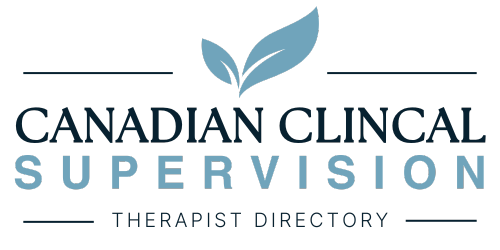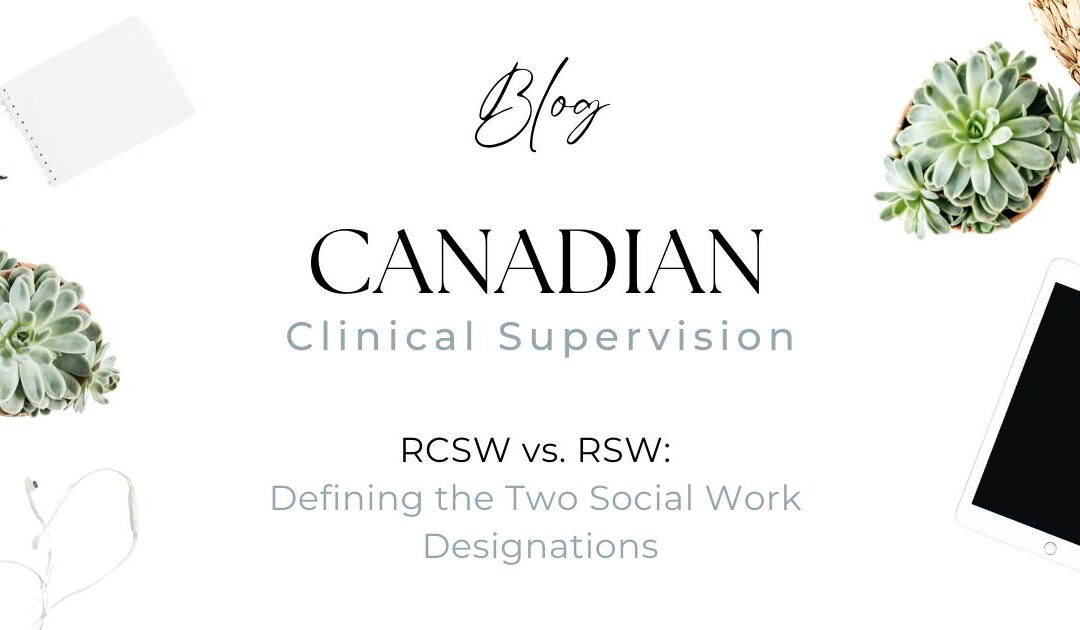As a social worker, you may wonder what the difference is between a RCSW vs RSW. This article explains the differences between both designations so that you gain a better understanding of what they are and their role in the social work profession in Canada.
Social Work Protected Titles
In most provinces and territories across Canada, there are specific social work designations that are considered protected titles. In these jurisdictions, the provincial social work regulatory college governs the use of social work protected titles as well as there are typically provincial legislation that regulates the use of such titles, such as the Health Professions Act in Alberta, Social Workers Act in British Columbia and the Social Work and Social Service Work Act in Ontario, to name a few.
In most provinces and territories, the title of social worker, registered social worker or RSW are protected titles. Meaning only individuals who have met the regulatory college’s registration requirements may use the designations. Also, in the provinces of Alberta and British Columbia, the professional designations clinical social worker, registered clinical social worker, and RCSW are also protected titles. The roles between the two designations slightly differ.
Registered Social Worker (RSW)
A registered social worker (RSW) is someone who has met the minimum educational requirements set out by the provincial regulatory college and completed the process for registration. In most provinces, the minimum educational requirement to obtain an RSW is a bachelor’s degree in social work. However, in Alberta, individuals who have completed an accredited diploma program in social work may also obtain the RSW designation. Depending on the province, a RSW may be considered provisional until they meet the minimum practice hours required to obtain general or full registration status.
Registered Clinical Social Worker (RCSW)
A registered clinical social worker (RCSW) is an advanced designation that is available in Alberta and British Columbia. In both provinces, individuals must first become a RSW before obtaining the RCSW designation. To become a RCSW there are specific educational, practice, and clinical supervision requirements that must be met prior to the application process. To become an RCSW, the minimum education required is a master’s degree in social work and successfully pass the ASWB Clinical Exam to join the clinical registry (Alberta) or clinical class (BC).
The Differences RCSW vs RSW
But the million-dollar question is how do these designations differ? This section will discuss the difference between the RCSW vs RSW designation.
RSW
- Designation is required to be considered a social worker across Canada. With the exception of Quebec, as the designation is PSW (CASW, n.d.1) and Yukon or Nunavut, as these provinces have not regulated social work (Association of Social Workers in Northern Canadian, n.d.).
- Minimum educational requirement is a bachelor’s degree in social work in most provinces, or a diploma is social work in Alberta.
- Depending on the province, applicants may be required to successfully complete the ASWB Associate, Bachelor’s or Master’s exam. Provinces, such as BC, require every RSW applicant to pass the exam (BCCSW, n.d). Provinces, such as Alberta and Newfoundland and Labrador, only require the successful completion of the exam if it’s been more than 3 years since the completion a social work program (ACSW, n.d.; NLCSW, n.d). While provinces, such as Ontario and Nova Scotia, do not require an exam at all. Although, for Ontario, there is a proposed change to this requirement which is expected to take effect in 2027 (OCSWSSW, 2022).
- Depending on the province, applicants may start as a provisional social worker until specific practice and clinical supervision requirements are met.
RCSW
- Optional designation and only available in Alberta and BC.
- Considered an advanced designation in clinical practice.
- Must first hold the RSW designation and be in good standing with the social work regulatory college.
- Minimum educational requirement of a master’s degree in social work.
- Minimum number of clinical practice and clinical supervision hours required.
- Successful completion of the ASWB Clinical Exam.
- Once approved, the applicant is added to the clinical registry (Alberta) or clinical class (BC).
- Permitted to call oneself a Clinical Social Worker.
- Qualified to use the DSM and to make mental health diagnoses (CASW, n.d.2).
- Can register as a social work provider with certain third-party insurers, such as the Non-Insured Health Benefits (NIHB). In provinces with the RCSW designation, the NIHB only accept social workers who hold the designation as approved clinicians on their roaster. However, most other third-party insurers accept the RSW designation.
Also, as the requirements and registration process differ across jurisdictions and regulatory colleges, please review your local regulatory college’s application and registration process before applying for either professional designation.
Conclusion
As registration with your local social work regulatory college is mandatory when practicing in regulated provinces and territories, obtaining the RSW credential is likely the first step in your social work journey. When deciding between RCSW vs RSW, first determine which designation best fits your career goals as a social worker. If becoming an RCSW is your next professional step, you can learn more about how to become a RCSW by checking out our province-specific articles.
Read: How to Become a Clinical Social Worker in Alberta
Read: How to Become a RCSW in BC
Disclaimer #1
This article is not written on behalf of or for any social work regulatory body and has not been reviewed, approved, or endorsed by social work regulatory bodies in any way. This is an interpretative review of available RCSW and RSW information. For specific questions about the RCSW or RSW requirements or registration process, please contact your local social work regulatory body directly.
Disclaimer #2
This article is for educational and informational purposes only and is not intended as professional advice. This information is only relevant up to the date it was written and is subject to change based on regulatory or legislative updates.
References
ACSW. (n.d.). FAQ. Retrieved from https://www.acsw.ab.ca/site/faq_main?nav=sidebar
Association of Social Workers in Northern Canada, (n.d.). Who we are. Retrieved by https://www.socialworknorth.ca/
BCCSW. (n.d.) Licensure Testing and Professional Regulation. Retrieved from https://bccsw.ca/application-information/welcome-to-the-examination-information-page/licensure-testing-professional-regulation/
CASW. (n.d.1). What is regulation? Retrieved from https://www.casw-acts.ca/en/regulation-association-education/what-regulation
CASW. (n.d.2). Frequently Asked Questions. Retrieved from https://www.casw-acts.ca/en/111-frequently-asked-questions#:~:text=Clinical%20Social%20Workers%20hold%20advanced,make%20a%20mental%20health%20diagnosis
OCSWSSW. (2022). College update: Eventual implementation of entry-to-practice exams. https://www.ocswssw.org/2022/05/18/college-update-eventual-implementation-of-entry-to-practice-exams/#:~:text=On%20September%2010%2C%202021%2C%20College,of%20the%20College’s%20registration%20requirements.
NLCSW. (n.d.). ASWB exam. Retrieved from https://nlcsw.ca/aswb-exam/

